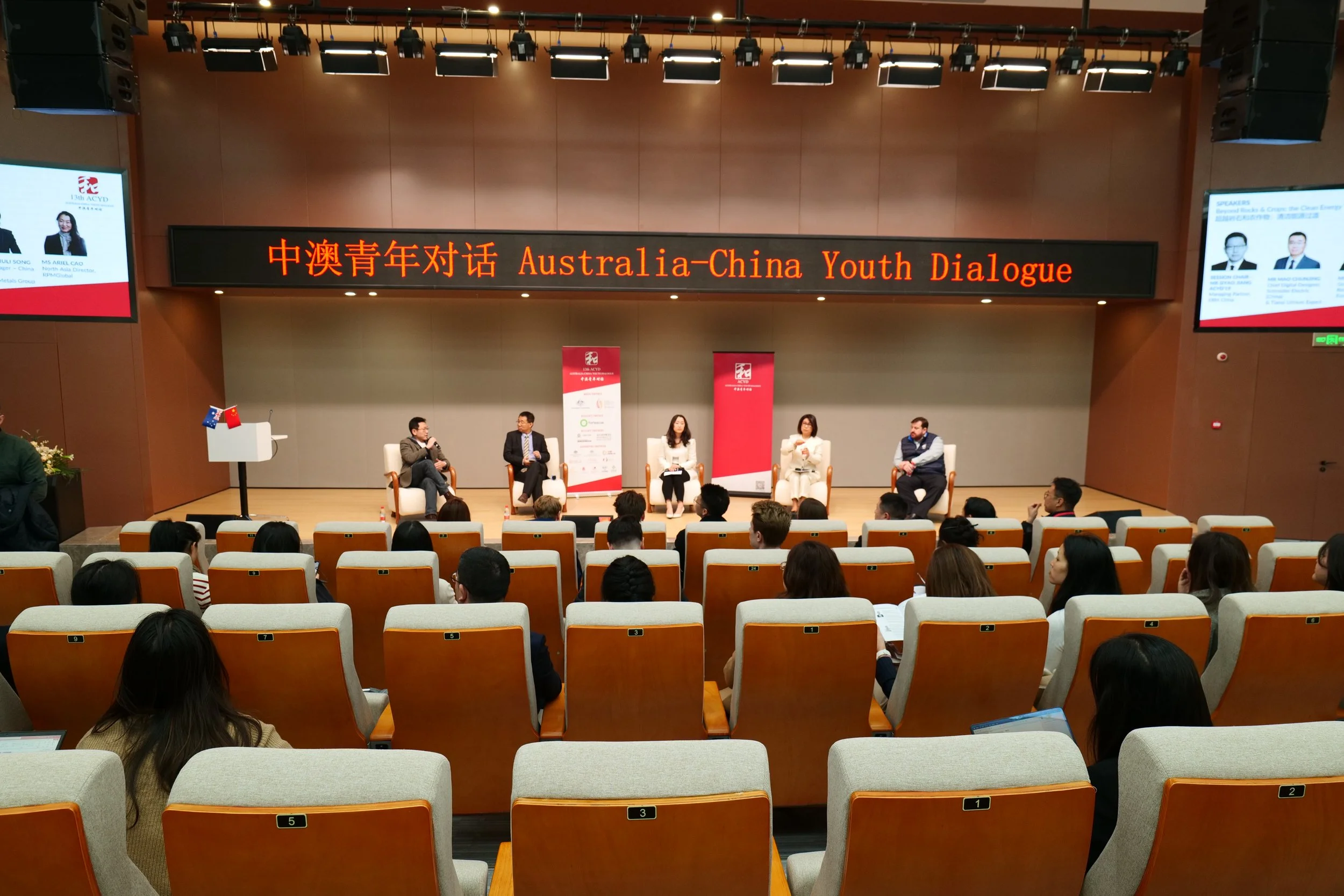A family holiday at the age of 12 hooked Veronica Walker on all things China. Now almost two decades later, the Asian studies and arts graduate is still peering interestedly into the backyard of the country with the Great Wall.
She’s just returned from the 2013 Australia China Youth Dialogue – an annual conference that promotes engagement between young adults from China and Australia who are interested in strengthening the two countries’ relationship.
As one of two alumni prize recipients selected to attend the conference on behalf of the ANU College of Asia and the Pacific, Veronica had the opportunity to engage with other young professionals on the big issues affecting the Australia-China relationship.
“The Australia China Youth Dialogue really highlighted the fact that there is a strong group of Australian and Chinese individuals with immense goodwill and passion seeking to build greater understanding and deeper relationships between these two countries,” she says.
“The Dialogue covered a range of key issues in the bilateral relationship, from climate change to business engagement. But central to all of these discussions remains the importance of building strong people-to-people links and understanding.”
Veronica’s used to looking at the big picture. It’s something she had to do as part of her previous role as an advisor to the Australia in the Asian Century Implementation Taskforce.
“The Taskforce was a cross-agency team established to support implementation of the former Government's Australia in the Asian Century White Paper,” says Veronica.
“The highlight of this role was having the opportunity to combine my professional role with my interest in China and Australian engagement with Asia. I also enjoyed the opportunity to work in a fast-paced environment with a dynamic team of people from a range of different agencies.”
But for Veronica, it isn’t just policies that will ensure Australia will succeed in the Asian century. It comes down to people, culture and experience. Such a perspective is unsurprising considering Veronica’s experiences in childhood and as a student.
“My father is an academic and growing up we often had international postgraduate students living with our family. Qian, from Yangzhou, stayed with our family for the longest, around 18 months.
“And as an Asian studies student who majored in Mandarin at ANU, I had the opportunity to complete the Year in Asia Program in 2004 – nearly 10 years ago now!
“I studied at the Beijing Language and Culture University and this gave me my first in-depth experience of China and allowed me to put in to practise some of the skills I'd learnt while studying in Canberra.”
For the immediate future Veronica’s gaze has turned to Australia’s own backyard. She has just started a new job with the Australian Government looking at Indigenous economic development.
But with some 20 years of hands-on experience with one of the world’s most dynamic countries, we bet it won’t be long before she is back in China, helping to break down walls.
Veronica Walker completed a combined Bachelor of Asian Studies/ Bachelor of Arts at ANU in 2006.
Featured image by Songquan Deng from flickr.
Source: Australian National University Website, http://asiapacific.anu.edu.au/news-events/all-stories/breaking-down-walls#.UluxNGTN9kh











